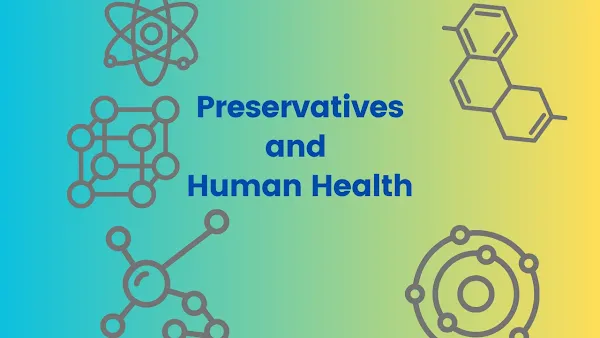Preservatives and Human Health
Unveiling the Impact on
Well-being
Preservatives play a pivotal
role in prolonging the shelf life of food products, preventing spoilage, and
maintaining their overall quality. While they are essential for the
preservation of our food supply, questions have arisen about the potential
impact of these additives on human health. In this article, we will explore the
ways in which preservatives can affect our well-being and delve into the
importance of making informed choices when it comes to the consumption of
preserved foods.
Decoding Preservatives
1.
Understanding Preservatives:
Preservatives are substances
added to food, pharmaceuticals, and cosmetics to inhibit the growth of
microorganisms, thereby preventing decay and spoilage. They can be natural or
synthetic and are widely used in processed foods to extend their shelf life.
2.
The common types of Preservatives:
There are various types of
preservatives, including antioxidants, antimicrobials, and anti-browning
agents. Common examples include sodium benzoate, sorbic acid, and sulfites.
Each serves a specific purpose in preserving different types of products.
3.
Potential health concerns :
a. Allergic reactions
Some individuals may be
sensitive or allergic to certain preservatives, leading to adverse reactions
such as hives, itching, or respiratory issues. For instance, sulfites, commonly
used in wine and dried fruits, can trigger allergic reactions in susceptible
individuals.
b. Impact on gut health
Certain preservatives may
disrupt the balance of gut microflora, potentially affecting digestion and
nutrient absorption. This imbalance could contribute to gastrointestinal issues
and compromise overall gut health.
c. Association with chronic conditions
Some studies suggest a
potential link between the consumption of certain synthetic preservatives and
chronic health conditions. For example, research has explored the relationship
between artificial preservatives and conditions such as ADHD in children.
4.
Making informed choices:
a. Reading labels
Consumers can make healthier
choices by reading food labels carefully. Look out for preservatives with known
health concerns and opt for products with natural preservatives or those with
minimal additives.
b. Choosing altern fresh alternatives
Opting for fresh, whole foods
whenever possible can significantly reduce exposure to preservatives. Fresh
fruits, vegetables, and unprocessed meats are excellent alternatives to heavily
preserved items.
c. Balanced and
varied diet
Maintaining a balanced and
varied diet not only promotes overall health but also reduces reliance on
highly processed and preserved foods. Incorporating a diverse range of fresh,
whole foods ensures a broader spectrum of nutrients.
Preservatives have long been a
staple in the world of food production, serving as guardians against spoilage
and extending the shelf life of our favorite snacks and meals. However, as our
understanding of nutrition and health deepens, questions arise about the
potential effects of these additives on the well-being of consumers. In this
comprehensive guide, we'll explore the multifaceted relationship between
preservatives and human health, shedding light on the various ways these
compounds can influence our bodies and providing insights on making informed
choices.


Aucun commentaire:
Enregistrer un commentaire